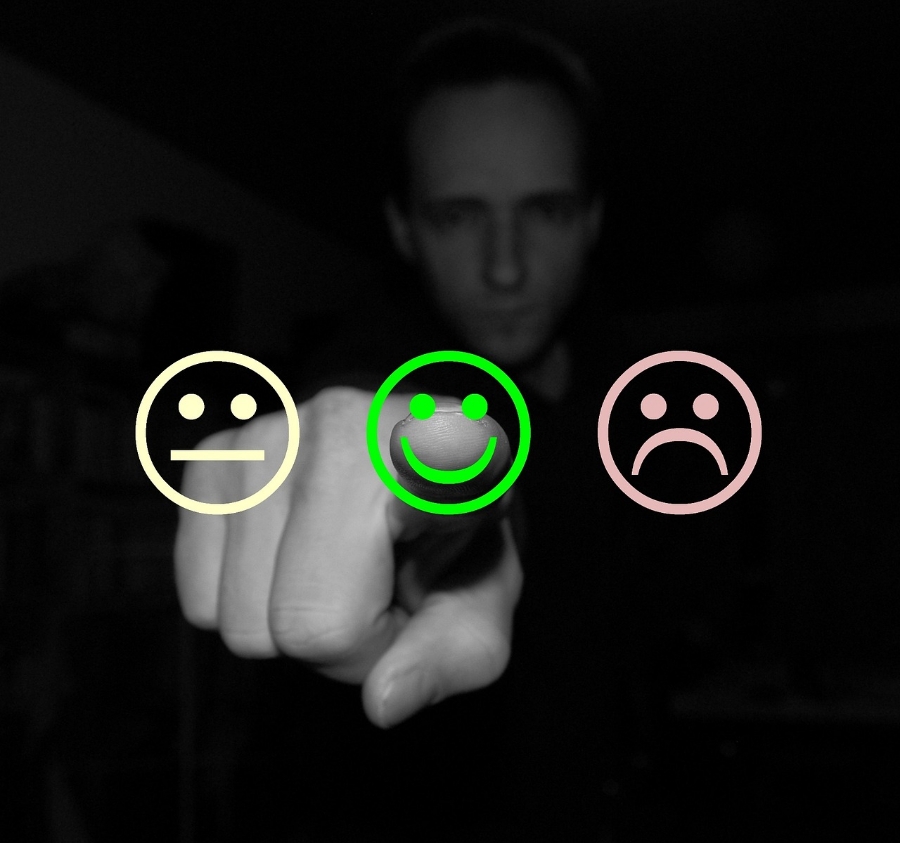Blog
Introduction
Handling media inquiries about an issue or event—or sharing an organization’s achievements—often involves live interviews. Understandably, many people worry about saying the wrong thing in such a situation.
The prospect of being interviewed can unsettle even the most confident individuals, especially given stories of probing questions from aggressive reporters or hosts seeking compelling answers for their audiences.
With thorough preparation and a solid understanding of the news media, you can approach any media interview with confidence and avoid being at a disadvantage.
Understanding the Media Environment
This guide is focused primarily on daily media, where the pressures of deadlines, competition, and advertising ratings create a unique environment for reporters and hosts. These factors distinguish daily media from other forms of communications media. The advice given in this article offers guidance on how to prepare for and protect yourself during the interview, how to use interviews to your advantage, and how to channel your pre-interview nerves productively.
Reporters are There to Do a Job
Most reporters are not seeking to embarrass or discredit interviewees, they are primarily interested in the story. However, they may make exceptions if they believe important information is being deliberately concealed. It’s their job to ask probing questions as part of the interview process, and you must prepare for highly informed and tough questioning.
What Is “News”?
Preparing for media interviews requires an understanding of what the media consider to be “news”. Ultimately, news is determined by media decision-makers based on what they believe is important to the public at the moment, not necessarily what you think is important. Only the most newsworthy stories are covered, and even those are limited by available time or space. Not all interviews result in media coverage.
News as Entertainment
Broadcast media are part of the entertainment industry. Their content is designed to be engaging and fast-paced to retain audience attention, often favoring stories that are entertaining, controversial, or tightly focused. Interviews are typically brief unless the topic is very current or fills a programming gap. Media competition is intense, and ratings and “likes” are the top priority. Reporters seek exclusive stories and memorable “sound bites”, which can sometimes be taken out of context or be unrelated to your main message. Avoid off-the-cuff humor, as it may be used as an embarrassing sound bite.
Know Your Interviewer
Some forms of reporting – particularly on social media – involve the reporter as part of the story, sometimes bringing their own biases or seeking interviews to support pre-existing views. Learning as much as you can about the interviewer ahead of time will help you prepare appropriately.
Preparing Yourself Before the Interview
Preparation is critical to a successful media interview. Pre-interview preparation can be as important as anything you say during the course of the interview itself.
Give yourself sufficient time to thoroughly prepare. Whenever possible, avoid spontaneous interviews; being unprepared may make you seem indecisive, evasive, or even incompetent. Here are some key things to remember to help you prepare properly so you can keep your cool and quell those pre-interview nerves.
Clearly define the goals and key points you want to underline.
Ask yourself the following question: What do you hope to accomplish in this interview? Write down your objectives to keep them top of mind throughout the process.
Develop a brief list of key points that you want to make during the interview. Limit these to only two or three for most interviews. Experienced interviewees often weave these key points into many of their responses to ensure their main messages are being communicated.
Determine the newsworthiness of your story.
If you are the one who is inviting the media to conduct the interview, be very sure that the information you plan to share is truly newsworthy. Seek professional advice if necessary. Remember that what constitutes news is determined by the media—not by you. Reporters must see an angle in your story that their viewers / listeners / readers will find interesting enough to consume.
Get details of media contacts.
If a reporter contacts you to ask for an interview, find out their name, the media outlet they work for, phone number(s), the purpose of the interview, name of anyone else being interviewed for the same story, and the deadline by which the story will be published. Keep a record of this information, especially if you will be participating in multiple interviews.
Prepare potential Q&As.
Anticipate possible questions and prepare concise answers. Pay special attention to awkward or difficult questions that a reporter might ask. Once you have mastered responses to the toughest questions, the rest should come more easily.
DON’T refuse a request for an interview.
Refusing an interview is rarely a good option. It will look like you have something to hide. If you decline to be interviewed, the information void will likely be filled by less informed individuals—or even your critics or rivals.
Rehearse, rehearse, rehearse.
Conduct as many mock interviews as possible. Ideally, these should be facilitated by an external professional rather than an internal employee, as employees may hesitate to ask potentially embarrassing questions—precisely the kind of questions that these rehearsals should be addressing.
Record your practice interviews and review them thoroughly, identifying strengths and weaknesses. Repeating rehearsals and reviewing playbacks is a powerful tool in your preparation toolbox.
Choose the interview location, if at all possible.
If you have a choice, you – not the media contact – should be the one selecting the interview location. Try to choose a room where you can control access and display your organization’s logo behind you, maximizing exposure for broadcast media and photographers.
The ever-increasing reliance of content producers on artificial intelligence apps to generate content for online use begs the question of what legal obligations and liability risks arise from the use of that content.
The statutory and regulatory requirements governing the use of AI to generate online content varies widely by jurisdiction. While there is no universal set of laws, certain general legal principles apply across the spectrum.
1. Copyright and Intellectual Property Rights
When an AI bot generates content, the first questions that arise are: “Where did it obtain this content? Is it original or was it derived from an existing source? If it is derivative, who holds the copyright to that material? Who should be credited as the author?”
Is the “author” the AI bot, the human who programmed or trained it, the human who provided the input data, or the human who edited or published the output? Different jurisdictions may have different criteria for determining authorship and ownership of AI-generated works, and some may not recognize AI as a legal entity or a “creator” at all.
It is important to determine whether the AI is creating “original work” or if the content is derivative of existing copyrighted material. Additionally, the use of AI to replicate copyrighted content without permission may infringe on the copyright holder’s rights.
AI-generated content may fall under the doctrine of fair use or transformative use, which allows the use of copyrighted material for purposes such as criticism, comment, news reporting, teaching, scholarship, or research. However, this is not a clear-cut rule and depends on factors such as the purpose and character of the use, the nature of the original work, the amount and substantive nature of the portion used, and the effect of that use on the potential market.
2. Liability and Accountability
AI-generated content may also entail legal risks and responsibilities for the parties involved in its creation and distribution. For example, who is liable if the AI-generated content infringes on someone’s rights, causes harm, or violates laws or regulations? How can the AI bot be held accountable for its actions and decisions? How can the human users or beneficiaries of the AI-generated content ensure its quality, accuracy, and reliability?
3. Privacy and Data Protection
AI-generated content may involve the use of personal data, such as names, images, or biographical information, to create realistic or personalized content. This could violate any number of privacy and data protection laws that regulate how personal data can be collected, processed, and shared online.
If the AI uses personal data to generate content, it must comply with data protection laws such as the General Data Protection Regulation (GDPR) in the European Union, the California Consumer Privacy Act (CCPA), the Personal Information Protection and Electronic Documents Act (PIPEDA) of Canada, and other similar regulations. These laws require obtaining consent from individuals before processing their personal data and ensuring the protection of that data.
4. Transparency and Disclosure
Depending on the jurisdiction, there may be requirements to disclose to your site visitors that content has been generated by AI, especially in cases where the content might be mistaken for human-generated content. This is particularly relevant in advertising, news articles, and other media where trust and authenticity are important.
AI-generated content may pose ethical challenges, such as opportunities to mislead or deceive the audience, harm the reputation or dignity of individuals, or undermine the credibility or diversity of information sources. From an ethical standpoint, it is important for content developers to disclose the use of AI to generate content and provide clear and accurate information about the source, purpose, and quality of the content. It’s also important to avoid creating content that is harmful, offensive, or discriminatory.
5. Consumer Protection Laws
AI-generated content must not mislead consumers. This falls under broader consumer protection laws that prohibit deceptive practices. Content that is designed to deceive or mislead users may result in legal action and penalties.
6. Liability for Harmful Content
If AI-generated content is defamatory, discriminatory, or otherwise harmful, there may be legal consequences. The entity responsible for the AI may be held liable for the content it produces, depending on the legal framework governing speech and publication in the relevant jurisdiction.
7. Accessibility
Laws such as the Americans with Disabilities Act (ADA) in the United States may require that online content, including AI-generated content, be accessible to individuals with disabilities. This includes ensuring that content is compatible with screen readers and other assistive technologies.
8. Platform-Specific Rules
Online platforms (such as X, Facebook, Instagram, etc.) have their own terms of service and/or community guidelines that govern the use of AI to generate content. These rules may go beyond legal requirements and can result in content being removed or accounts being banned for non-compliance.
9. Export Controls and Sanctions
In some cases, AI technologies are subject to export control laws and sanctions, guidelines and requirements for disclosing AI generated content.
TAKEAWAYS
Full Disclosure. Always disclose which content is AI-generated and clearly label it as such. This can be done through disclaimers or specific mentions within the content that it was generated or assisted by AI.
Quality Assurance. Regardless of whether content is AI-generated or human-written, the focus should always be on producing high-quality, original content that provides value to the audience.
Compliance with Laws and Regulations. The very nature of the worldwide web means that content on your website is accessible anywhere in the world. Be aware of any legal requirements or industry standards – both within your own jurisdiction and globally - that may apply to AI-generated content, and ensure that your content is compliant.
Image by Gerd Altmann from Pixabay
Image courtesy Pixabay.Com. Content partially researched using Microsoft Copilot AI.
Bill C-45 has passed the Senate. Once enacted, the Cannabis Act will make it legal to smoke pot in Canada, and to grow a limited quantity of personal marijuana (up to 4 plants) on your property.
And while pot growers, distributors and smokers are very happy about the legalization of marijuana, condo boards and landlords across the country are scrambling to deal with issues which will impact all residents in every multi-unit dwelling in Canada.
Potential risks and grounds for complaints
In most provinces and territories, condo boards and landlords have the legal authority to impose restrictions on smoking of any kind in common areas and exclusive use areas such as balconies or decks. They can also ban growing marijuana in individual units for health and safety reasons.
Regardless of whether a certain behaviour is legal, there are common interest factors at play, i.e. the risks that such behaviour may pose to the building and to other residents of the building. In the case of smoking and/or growing pot, these include:
- increased risk of fire and a resulting increase in insurance costs which affects all occupants;
- dangers of second-hand smoke;
- noxious smells;
- damage to the unit from moisture, which could result in mould and water damage to floors, walls and windows;
- increased costs for electricity and water in buildings where these are not separately metered.
Any one of these factors can create friction between residents, particularly in a condo or strata development where the residents are typically the property owners who are simply interested in protecting their own properties from hazard and damage. Regardless of whether you have the right to smoke within your unit or not, the smoke and the smell will travel through air vents and around doors and will inevitably end up invading other people's air space.
The steps condo boards can take
Condominiums that do not already have smoking restrictions in place can enact rules that ban smoking pot in areas that are commonly owned and from growing pot in their units. Many condominiums are opting to go completely smoke-free, although existing owners would be grandfathered.
Tenants in a condo unit are required to abide by the condo bylaws and the building rules, and the unit owners are obligated to make sure their tenants do so.
However, the legal obligations of landlord and tenant are not so easy to interpret when it comes to rental buildings.
Are landlords left in the lurch?
There is a patchwork of provincial regulations across Canada when it comes to giving landlords the legal authority they need to establish smoke-free and grow-free rules for rental units. The table below outlines the current (as of June 2018) laws and proposed amendments to specifically address smoking and/or cultivation of recreational marijuana.
| British Columbia | B.C.'s proposed rules allow "landlords and strata councils ... to restrict or prohibit non-medical cannabis smoking and vaping at tenanted and strata properties." They will also be able to prohibit or restrict home cultivation of pot. |
| Alberta | The Residential Tenancies Act of Alberta clearly states that landlords have the right to set the rules for a rental property. That includes smoking and growing cannabis. |
| Saskatchewan | The Residential Tenancies Amendment Act 2017 will give Saskatchewan landlords the right to create rules against possessing, selling, and using marijuana inside the rental property, including the growing of cannabis. |
| Manitoba | Manitoba has proposed legislation to completely ban home cultivation of pot. In addition, the Non-Smokers Protection Act will be expanded to include marijuana, so non-smoking rental units and buildings will prohibit the smoking of pot. |
| Ontario | Under the current Ontario landlord-tenant laws, landlords can ban smoking marijuana in rental units for new leases but they are not able to change an existing lease before the end of the lease. So if the existing lease allows smoking in the rental premises, smoking marijuana would be allowed. New leases can include a provision to ban smoking pot. Smoking in common areas of apartment buildings is already prohibited under provincial law, and this would include pot. |
| Quebec | Quebec has stated it will completely ban home cultivation of cannabis. The province has also stated that apartment leases that prohibit tobacco smoking may also apply to marijuana. It is unclear at present if landlords will be able to amend their leases to prohibit pot smoking and whether such prohibitions would hold up in court. |
| New Brunswick | The province's Final Report of the Select Committee on Cannabis "recommended affirming that landlords be free to prohibit the cultivation of recreational cannabis." No legislation or amendments have been passed at this time (June 2018). |
| Nova Scotia | The Cannabis Control Act allows landlords in Nova Scotia to amend existing leases to enact new rules restricting smoking and cultivation of recreational pot in rental properties. |
| Prince Edward Island | Cultivation and use can be prohibited by property owners and in condominiums. Tenants must have prior approval from the landlord before cultivating pot. |
| Newfoundland-Labrador | No legislation or amendments with respect to landlord-tenant issues at this time (June 2018). |
| Yukon | Under the Cannabis Control and Regulation Act, landlords will have the right to ban smoking or vaping pot and growing cannabis plants within rental properties. |
| Northwest Territories | The proposed legislation allows property owners to designate properties as smoke-free and restrict cultivation of pot. |
| Nunavut | Under consideration. |
Accommodating the needs of medical marijuana users
The main stumbling block to enforcing compliance of the rules and bylaws put in place by landlords, property managers and condo boards will be whether or not they will apply to medical marijuana use and whether such restrictions might be a violation of a user's Charter rights.
In R. v. Smith (2015), the Supreme Court of Canada found while smoking medical marijuana exposes its users to carcinogenic chemicals and higher risks of bronchial disorders, it also provides quicker access to the medical benefits of cannabis. In light of that finding, any restriction against smoking must take into account the smoking of marijuana indoors by disabled individuals who are using cannabis for medical purposes and who find it difficult or impossible to go outside to smoke it. A medical marijuana user who cannot go outdoors to smoke without significant difficulty may need to be accommodated by the condominium corporation or the landlord, as the case may be.
Elon Musk, CEO of Tesla, has made his position clear that if one of their self-driving cars has an accident, Tesla will not be liable and it will be up to the individual’s insurance unless the accident was the result of a design flaw.
Volvo, Waymo (Google) and Mercedes Benz, on the other hand, have all stated that they would accept full responsibility. The real question is, how will insurance companies assess liability between the manufacturer and the driver, or will they hold both parties accountable?
Autonomous vehicles are loaded with safety features and crash avoidance systems, making self-driving vehicles much safer overall. But accidents will happen, no matter how safe the design. The question of who – or what – is liable will still depend on the individual factors that resulted in the accident.
Regardless of what Elon Musk thinks, manufacturers and software designers will definitely be held liable to some extent in many cases. Self-driving vehicles continue to have problems adapting to bad weather and fast-changing road conditions, and liability for accidents occurring in autonomous mode under these conditions would land squarely on the shoulders of the car company.
But one big advantage the car companies have is this: testing has consistently shown computers to be safer drivers than humans. So it is logical to assume that under normal conditions, autonomous vehicles will have fewer accidents than human-operated vehicles.
UK Legislation and Insurance Coverage
The UK Government’s Automated Vehicles Act provides that, while their vehicle is in self-driving mode, drivers will not be held responsible for how the vehicle drives. For the first time, corporations such as insurance providers, software developers and automotive manufacturers assume this responsibility.
Adrian Flux was the first UK insurer to provide driverless car insurance. The policy is dependent on a licensed driver being in the vehicle and able to take control at any time, and can be invalidated if the owner fails to properly maintain the vehicle, including timely downloading all updates to the software. The driver would be liable under UK law if he/she is under the influence of drugs or alcohol, is texting or otherwise distracted, or if the vehicle is exceeding posted speed limits.
Adrian Flux’ website also outlines the following interesting points:
The UK’s road’s minister, Andrew Jones recently outlined how the insurance industry will adapt to the introduction of driverless cars and the question of liability by saying, “…in the event of a serious collision in driverless mode, it would be the vehicle at fault, instead of the human driver.”
The National Highway Traffic Safety Administration in the US also, for example, considers Google’s autonomous driving software can be identified as the driver. How this interpretation of liability will work with the State of California’s ruling requiring a fully licensed driver to be present in the car is still unclear. If there’s no steering wheel in the car, as Google is planning, why would a human occupant need a driving licence or car insurance?
That last paragraph raises the issue of who is considered the “driver”. If the car / software is held to be the “driver” under the law, then the auto maker must be held responsible to a large degree. A number of insurance industry analysts have said that this crosses over into product liability rather than personal insurance. If the technology malfunctions or if the car fails to respond as it was intended to, this is clearly a product liability claim and the auto maker’s insurance would and should pay for damages.
Here's an interesting question to consider.
If the law requires a driver to hold a valid driver’s license to operate a vehicle, will it not then be necessary to institute a series of driving tests that the car must pass before it can drive itself?
Conclusion
The insurance industry will continue to adapt and adjust as the driverless car industry evolves and as the pattern begins to emerge over time as to the types of accidents occurring, the number of claims processed and the quantum of damages paid out.
While improvements to safety systems have lowered the frequency and severity of certain types of collisions, they are also much more expensive to repair and replace. This results in higher payouts from insurance companies, which results in higher insurance rates being passed on to the consumer. On the up side, though, the safer your vehicle is, the lower the rate you will get from most underwriters.
For the immediate future, it seems likely that most insurance policies will still require a licensed driver to be present in the vehicle and ready to take over in the event of an emergency. An underwriter may assess liability based on how much control the human operator had or might have had over the vehicle.
If there is no means for the individual to take control, then the individual would bear no responsibility and the auto maker would be liable for the damages. Insurers and governments still have time to develop and implement laws, policies, rules and regulations before self-driving vehicles become a common sight on our streets and highways.
Image licensed by CreativeCommons.org
The release of Pokemon Go has opened a Pandora's box of concerns for property owners, lawyers and lawmakers. This is a brief overview of potential legal issues arising from the new and developing area of augmented reality apps.
With the Cameron government's proposal to automatically filter out pornographic websites from Internet access to all households in the United Kingdom, the UK joins a growing list of countries which attempt to censor all or part of the Internet content their citizens are able to access. All of which begs the question, is the name "world wide web" a misnomer? Is the Internet truly universal?
To answer my own question, not dead yet (nod to Monty Python). But it's definitely ailing.
It seems like most of the service sectors could use a refresher course in courtesy. Remember back in the day when you would pull into a service station (keyword "service"), and a smiling attendant would come out, pump your gas, check your oil and even wash your windows? And when you paid for the gas, you might even get a free air freshener for your car! (If you're under 40, all of this will sound like some impossible Pleasantville fantasy.) Today you drive up to the self-serve gas bar, pump your own gas, clean your own windows (if you can find a squeegee), check your oil (or decide to skip it because you'll get your hands dirty and you're on your way to work), and pay by credit or debit card at the pump, thereby avoiding all human contact. Faster? Decidedly. More enjoyable? Get real. Smiling? Not.
Convenience isn't everything.
We all realize that we save money by doing it ourselves - whether it's pumping gas or bagging our groceries. Nobody is against saving money if it means skipping a few little amenities. But the whole concept of "Service" seems to have gone out the window along with those little amenities. And as a side effect of convenience, we're robbing millions of high school kids of potential after-school jobs at the gas station or the grocery store. So whatever cash we save on gas and groceries, we end up having to pay out for our kids' gas and cell phone bills.
What exactly is "customer service"?
The term "customer service" is made up of two words that naturally go together. Customer Service is defined as "an organization's ability to supply their customers' wants and needs." The definition of a customer is someone who purchases goods or services (that word again).
Whether our business is located in a brick and mortar building, online, or a combination of both, when we serve a customer we are promoting our brand. The way in which we serve that customer will shape how they perceive our business and will determine not just whether or not the customer will return, but also what they will have to say about us to family, friends and colleagues.
Customer satisfaction is essential!
Every business owner knows that a business survives solely on the goodwill of its customers. No matter how deep the pockets of your investors are, no matter how flashy and cool and sexy your products are - if your customers leave your store feeling unsatisfied or unhappy, your business is doomed.
Bad word-of-mouth gets around pretty quickly these days via X, Youtube videos, Google Reviews and other customer complaint / review websites. This morning's bad customer experience can become this afternoon's trending topic on X. Your marketing fail could soon be plastered all over the Internet for all to see, and your brand can be dragged through the virtual mud.
For a business that relies on local visitors - such as a restaurant - this is the kiss of doom. You now will have to look at spending a lot of time, effort and cash cleaning up the PR mess and hoping people will forgive and forget. Or you could just take steps to avoid it in the first place.
How to level up your customers' satisfaction level.
Let's go back to that definition of customer service and the part about "supplying a customer's wants and needs." How can we know what they want and need? Well, you can get a clue as to what they NEED by the fact that they've come to your shop or website.
If you sell cars, chances are they're not shopping for window blinds. So you have your first clue - now you narrow the field by asking them what they're looking for, then leading them to the items that fit that description. Narrow the field more by determining the price range, color, size, and other factors that will ultimately affect their decision to purchase.
We've dealt with what the NEED. But what do they really WANT? That part is pretty easy. They want what YOU want - to be dealt with respectfully and fairly, and to be treated as a person. An important person. Someone whose opinion matters. Someone whose time is as valuable as yours.
Personal Example #1: Lousy customer service.
I'm going to share an incident that happened to me not long ago. I went to the Customer Service counter in Real Canadian Superstore to ask a question. There were three people behind the counter who were obviously enjoying themselves, joking and giggling together. Unfortunately there were also three of us customers standing on the OTHER side of the counter waiting, and waiting, and waiting, while they had their little laugh fest, and we were not amused. After a couple of minutes of wasting my valuable time, I gave up and left.
Now to be fair, I've had positive experiences with Superstore's customer service people on other occasions. But THIS one stands out in my mind. Do I still shop there? Yes, but only because they have a big gluten-free section and their prices are better than the competitors. (Celiac disease sometimes means compromise.) But just because I want to save money doesn't mean I want to cease being treated like a human being.
Every business, no matter the size and no matter the clientele, must train their staff to be prompt, courteous and respectful. Don't waste our time.
Personal Example #2: Great customer service!
Now let's take an example from the other side of the aisle. I stopped at Tim Horton's one morning to fill up my travel mug with Tim's Dark Roast. The lady behind the counter got my coffee for me and then asked me if I was right- or left-handed. Why? Well, so she could put the lid back on my travel mug with the drinking spout on the appropriate side. Now THAT is great customer service.
One last tip for client-facing staff.
Remember to SMILE! If you don't enjoy your work, then you should go work somewhere else. Don't take it out on your customers. We didn't hire you - we're just standing in line waiting to be served.
You may be asking, "How do you do all this if your business is online? How can I strike up a meaningful relationship with people I've never met?" Well, people chat with customers on social media every day. "Prompt, courteous and respectful" still apply. Using the words "Thank you" liberally in your emails, post-checkout pages, and contact pages will make your customers feel appreciated.
And yes, you can SMILE with your telephone voice and with the words you use on social media!
Make customer service part of your everyday life.
Let's keep Customer Service alive and well by practicing it every day in our own businesses, and by reinforcing it in others whenever we encounter it in our lives. If a support person or salesperson meets or exceeds your expectations, let them know - and let their supervisors know too. Recognition is like a pat on the back - it encourages people to strive to do their best at all times. If your employees are doing their best for your customers, word will get around and your business will be all the better for it.
- 2025
- 2024
- 2023
- 2021
- 2020
- 2019
- 2018
- 2017
- 2016
- 2014
- 2013
- 2012
- 2011










